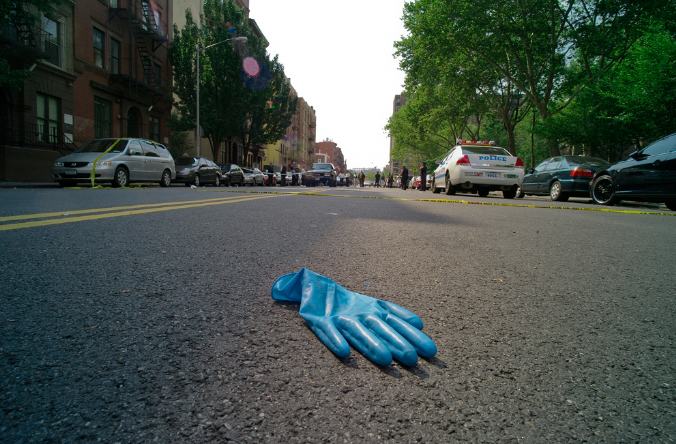One of the little noted features of modern life is how safe many people are much of the time. For all of the warnings about being out too late or going into the wrong side of town, most of us take for granted that we can be out and about on our own most of the time, that we don’t need to carry weapons, that the night will be well lighted, that it is more important to watch out for traffic than for enemies, and that stray bullets are not a problem. There have been many times and places in human history where one could not feel so safe so much of the time. Today, however, many people can afford to have other worries. But not everyone.
In some parts of the world today, violence is a terrible, chronic condition of everyday life. Eastern Congo continues to be the rape capital of the world, while terror bombings and gang killings are ubiquitous in far too many locales. Venezuela has a higher murder rate than Iraq. The Mexican drug wars are getting worse. In the US, homicide is the leading cause of death for young black men. And most of this carnage seems to be no part of ordinary life elsewhere. Even when violence does erupt, it quickly disappears again, leaving barely a trace.

This photograph from New York City provides strange testimony to both the presence and the elusiveness of violence. The blue rubber glove is all that the medical and forensic teams have left behind in the aftermath of a shooting at East 132 Street in Manhattan. (If you look carefully, you can see the yellow crime scene tape on the ground behind the police car, soon to be taken up but for the moment almost as natural and well ordered as the yellow lane divider that it crosses to make a square framing the lone glove.) That glove will have been pulled on by practiced hands and then discarded as the body was wrapped up and sent on its way to hospital or morgue, the evidence bagged up, the questions asked and reports filed. Experienced professionals will have followed well-honed procedures, and in little time the scene will have been returned to normal.
Or what passes for normal. One reason the image is disquieting is that the blue plastic is so artificial and out of place, and yet as one imagines it being picked up (and I think that is implicit in the viewpoint), the street is not improved so much as made disturbingly empty. One then can imagine that you are seeing the street as it would look to someone laying on the ground, say, while bleeding to death from a gunshot wound. At a distance on each side there are trees, nice cars, decent apartments, signs of the good life in a well-ordered city, but up close only the hard concrete leading past the cop car to an empty sky. And once that glove is picked up, there will no longer be any trace of all that was lost there.
The glove can be discarded, forgotten, and then thrown in the trash because it is disposable. Cheap (or not so cheap) plastic gloves are a sanitary precaution, of course, and disposables are just the thing for keeping first responders properly equipped during a busy night. The glove’s brief double duty as a witness to violence will not have been part of the plan, and it is all the more revealing for that. This small object is one example of the normalization of violence–of how a society manages violence and restores a semblance of order (and a large measure of amnesia) rather than confronting what has become a chronic social problem.
This is not to fault the first responders or to pretend that the police aren’t dedicated to and effective at preventing violence. Indeed, violent crime has in fact decreased overall in many cities over the past decades, albeit while becoming horribly concentrated in some neighborhoods and correlating highly with economic decline. At the end of the day, however, one can’t help but think that more than the glove has become disposable. Too many lives are being thrown away, too many neighborhoods abandoned, and, perhaps most important, a sense of shared obligation across all of the city and all of the globe, rich and poor, safe and unsafe, has been lost.
Photograph by Angel Franco/New York Times.
Discussion